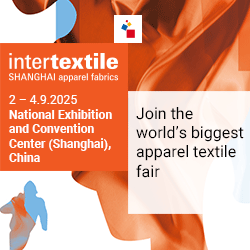The domestic textile and textile products (TPT) industry appears to be still limping in facing the challenges of the Covid-19 pandemic. In fact, this industry is seen as having an important role in the national economy.
Secretary General of the Indonesian Fiber and Filament Yarn Producers Association (APSyFI) Redma Gita Wirawasta said that the textile industry began to feel the impact of the Covid-19 pandemic since the second quarter of 2020 following the drop in factory utilization in the sector by up to 30% due to the Large-Scale Social Restriction (PSBB) policy. and a decrease in people's purchasing power.
Then, utilization in the textile industry began to increase to 50% in the third quarter of 2020 and 70% in the third quarter of 2020. "Even though the people's purchasing power at that time had not yet recovered, the government had tightened import permits so that utilities would increase," he said.
Entering the first quarter of 2021, the textile industry's utilization is getting better because it reaches the 80% level. However, a different challenge actually comes in the form of a flood of illegal imported fabrics via barges and the proliferation of imported apparel sold through online shops or e-commerce.
In fact, in the same period, the world crude oil price was on a creeping rise so that the raw price of textiles such as paraxylene (PX), purified terephtalic acid (PTA), methyl ethylene glycol (MEG), rayon pulp, and cotton also swelled. This condition certainly raises the price of threads, fabrics and finished clothes that are sold in the market. "As a result, the textile industry from upstream to downstream is currently restless," added Redma.
According to him, the textile export market for several product categories can still be used by Indonesian players. However, it must be admitted that export demand is not as strong as in the years before the pandemic.
For now, APSyFI is very concerned about the increase in imports of low-priced apparel products because it has a direct negative impact on Small and Medium Industry (IKM) players. In fact, IKM is said to be the spearhead of the domestic textile industry chain. "Currently, cheap imported apparel has been piling up in Indonesian warehouses and is ready to be distributed through the online platform," said Redma.
APSyFI also assesses that the TPT sector does not actually need much incentives. However, this association asked for priority in the form of domestic market guarantees. In this case, the government is urged to immediately implement the implementation of safeguards or security measures against the proliferation of imported textile products, especially apparel. Because, apart from IKM, other textile business actors will definitely be harmed by this problem.
"We need a trade policy that is pro-domestic industry, not a trade policy that is pro-imported goods," said Redma.
He also admitted that with a series of unfavorable conditions at this time, his party still needs to recalculate the projected growth of the textile industry in 2021 and beyond.





